
William Cogswell won a nail-biting race with a margin of fewer than 600 votes in a city known for its Southern hospitality and charm.
By Joseph Lord

CHARLESTON, S.C.—A city known best for its tourist attractions, seafood, and vibrant Southern culture has just elected its first Republican mayor since 1877.
By an extremely thin margin, former South Carolina State Rep. William Cogswell, a Republican, defeated Democrat incumbent Mayor John Tecklenburg to take the helm of one of the South’s most prominent cities.
Charleston, dubbed “the Holy City” for the many church spires that dot its skyline, is a place where history is everywhere: buildings dating to the 17th and 18th centuries are found across the city. The scars of the American Revolution and the American Civil War are still ubiquitous.
Still, at a metropolitan area population of just over 700,000 citizens over three nearby counties, Charleston is a small city that never managed to reach the heights of larger East Coast port cities like Boston and New York.
Nevertheless, Charlestonians are proud of where they live, a place where the old coastal southern culture is still remembered. In recent years, however, Charleston has grown dramatically, with new developments peppering the northern end of the city—leading many in the city and nearby to feel as if it’s growing too fast, becoming too similar to the north, and losing its core southern soul.
This sharp uptick in development has been led in large part by Mr. Tecklenburg, who directed the city for eight years since his election in 2015.
Charleston, one of three major cities in South Carolina, is important for Democrats, representing one of only a handful of blue strongholds in the otherwise deeply red state.
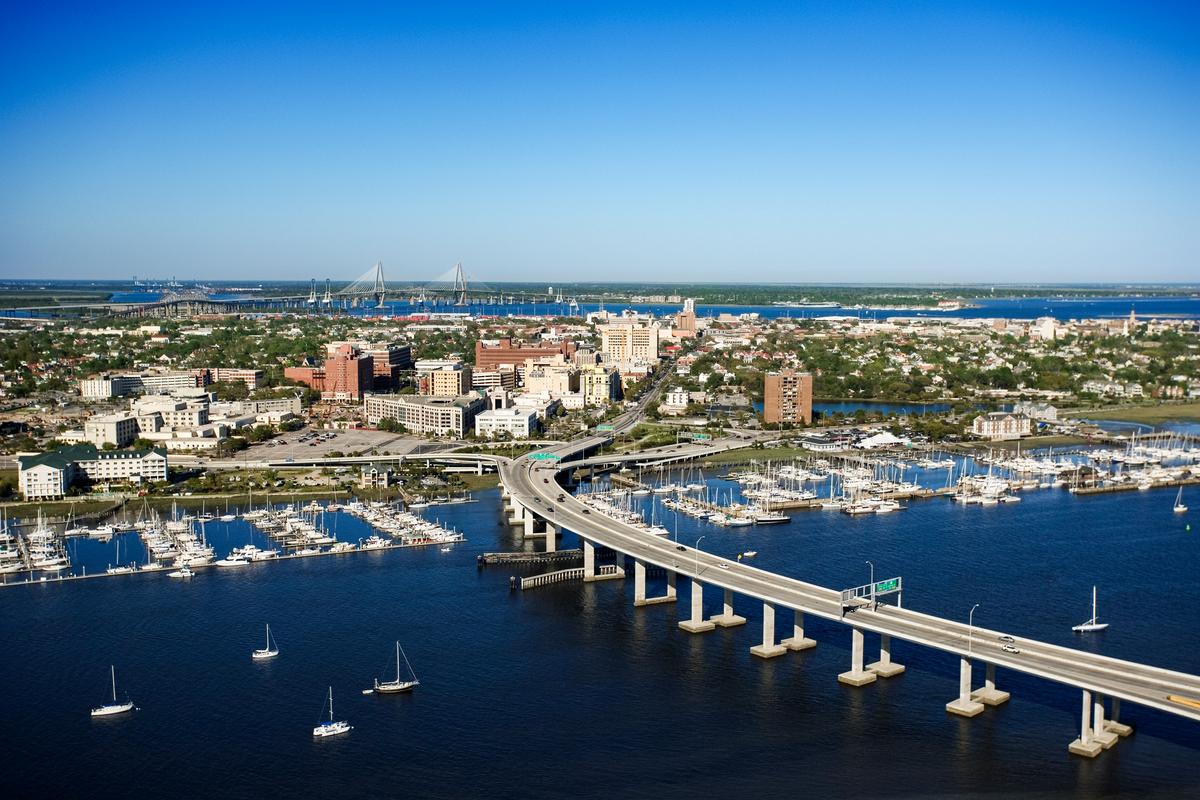
On the other hand, Charleston—though it tends to vote Democrat, like almost every metropolitan area—is a deeply moderate community.
In 2020, Charlestonians voted overwhelmingly for President Joe Biden, who won South Carolina’s 1st congressional district, in which Charleston is situated, by a double-digit margin.
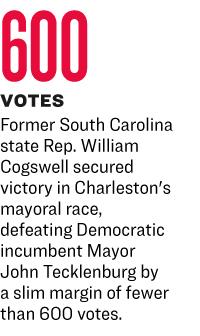
But in the same race, Charlestonians fired former Rep. Joe Cunningham (D-S.C.), and elected Rep. Nancy Mace (R-S.C.) by a one-point margin. In 2022, Ms. Mace won by a larger margin, defeating the Democratic challenger by nearly 14 points.
Now that Charlestonians have elected a new face to lead their small city, Mr. Cogswell will become the city’s first Republican mayor since the Reconstruction Era. He won a nail-biting race with a margin of fewer than 600 votes.
Mr. Tecklenburg quickly conceded the election, and indicated his best wishes for Mr. Cogswell’s success.
“I’d like to ask each and every Charlestonian to give him your support because starting tonight when Mayor Cogswell succeeds, Charleston succeeds,” he said in his concession speech.
A Republican Victory?
While Mr. Cogwell’s election represents a sign of hope for Charleston Republicans and conservatives, local political actors were divided on whether the victory should be considered a partisan one, or if local politics played the deciding role.
Much of the race was focused on purely local issues like the rapid development of the northern portion of the city, worries over public safety, and flooding concerns.
On the other hand, in recent years Mr. Tecklenburg has taken sometimes very liberal stances on Charleston issues related to race, policing, and other hot-button national political disputes.
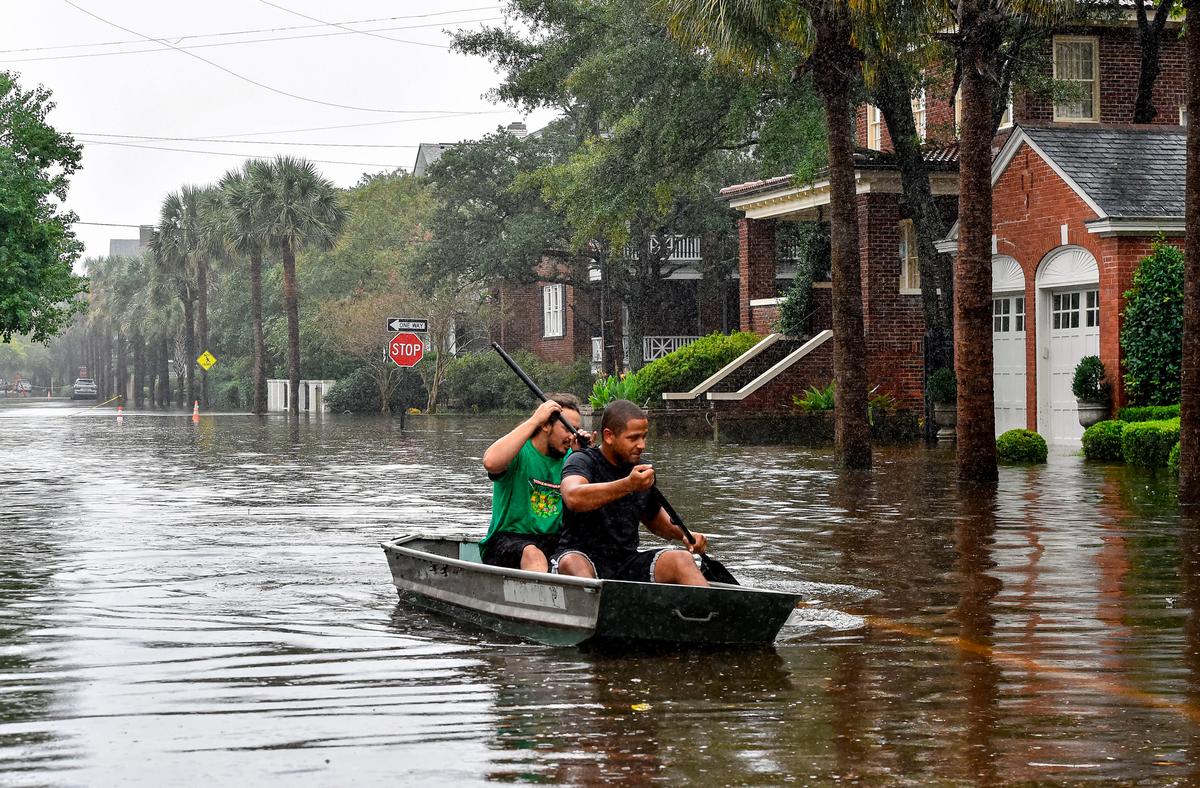
Charleston’s races are technically nonpartisan: candidates for office, whether running for mayor or city council or other municipal roles, can’t declare affiliation with either major political party on the ballot.
Nevertheless, the party affiliations of both major candidates were well-known: Mr. Tecklenburg is a big player in state Democratic politics, while Mr. Cogswell is a former Republican member of the South Carolina state House.
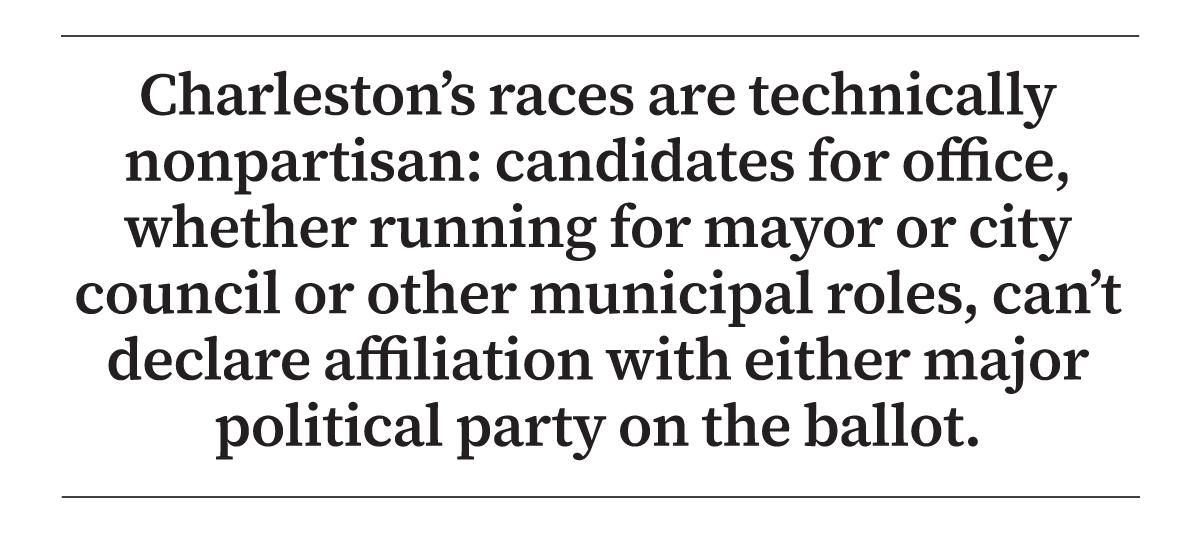
Given this dynamic, there were different takes on whether Mr. Cogswell’s victory can be chalked up as a broader Republican victory.
Garrett Lacy, an active member of the Greater Charleston Young Republicans, told The Epoch Times that the reason for Mr. Cogswell’s victory was a “50–50” split between local and partisan issues.
“Charleston, historically has always voted moderately conservative right in a majority of its areas,” he said. “But definitely, this was the first race where I believe it came strictly down to party in what would otherwise be a nonpartisan setting.”
Andrew Boucher, chairman of the Charleston Republican Party, told The Epoch Times that, though the race was nonpartisan, “the issues that define the candidates though tend to fall more along partisan lines.”
Charleston City Councilwoman Caroline Parker, who represents James Island—to the west of the city proper—argued meanwhile that, while she was excited for Mr. Cogswell’s victory, local issues were more responsible for Mr. Tecklenburg’s ouster than partisan factors.
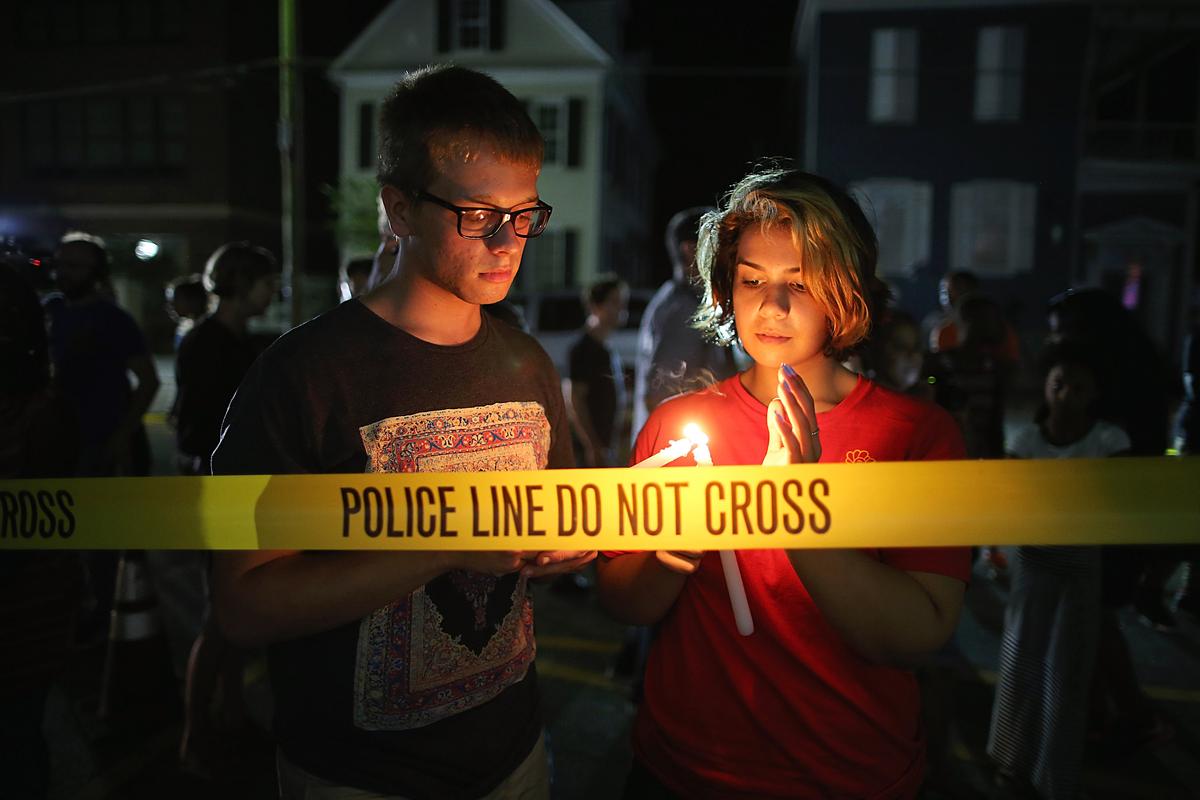
Local Issues
As is often the case in local elections, issues close to Charlestonians’ hearts defined much of the race.
The stunningly fast development of the northern end of the city has been a key complaint for locals in recent years, and changing the trajectory of that development made up a key aspect of Mr. Cogswell’s campaign.
On his campaign website, Mr. Cogswell, himself a real estate developer, emphasized that he would bring “good development” to the city.

“With 25 years of experience in real estate, William knows the difference between good and bad development,” the website states.
Ms. Parker agreed that this was an important point.
“I can’t speak for the inner workings, but it certainly seemed like Charleston quickly became this hub for development [in recent years],” she said. “This extreme, you know, growth I think people saw a lot of potential here and an untapped resource.”
Ms. Parker emphasized the need for appropriate infrastructure, including repairing crumbling roads, both within the city and on the nearby islands that comprise the municipality.
In addition, many of these new developments have a more modernistic architectural style, in contrast with the classical styles that define much of the southern historic half of the city.
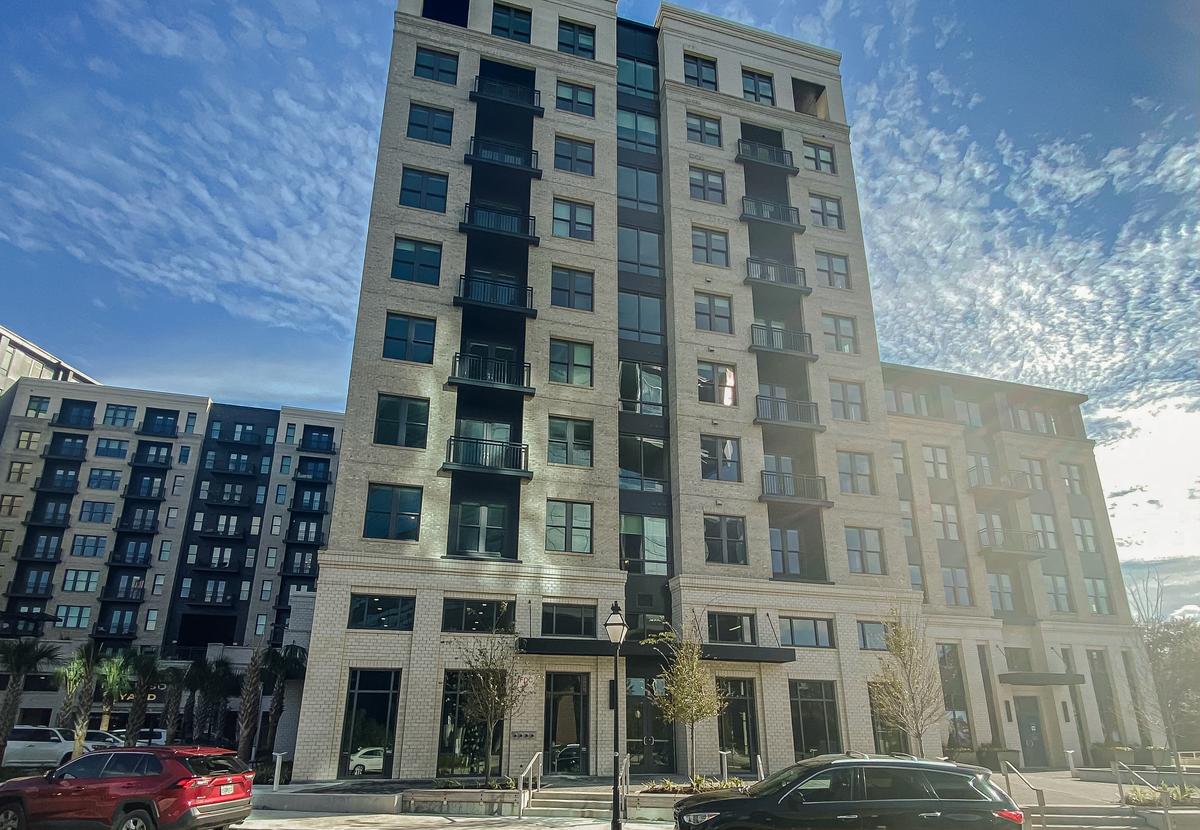
“It’s really changed the character and the charm,” Ms. Parker said.
Mr. Boucher agreed, saying “You can’t avoid the growth of Charleston” but emphasized the need for a corollary focus on developing infrastructure.
Ms. Parker, representing one of the areas outlying the peninsula, noted that many of her voters were concerned about the distribution of resources: though everyone under the municipality pays taxes to the city government, Ms. Parker said many of these tax dollars ended up in the city proper, while the peripheries were left out.
The increased prevalence of flooding in the low-lying city, situated on a peninsula between the Ashley River and Cooper River, has also been a top issue for local voters—and one addressed at length by both candidates.
Lying just around eight feet above sea level, in an area continually battered by hurricanes and storms from the nearby tropics, flooding also impacts the wealthier parts of the city.
‘Injecting National Politics’ Into Charleston
Though many local issues defined the race, it was also an unusually politicized one for the area.
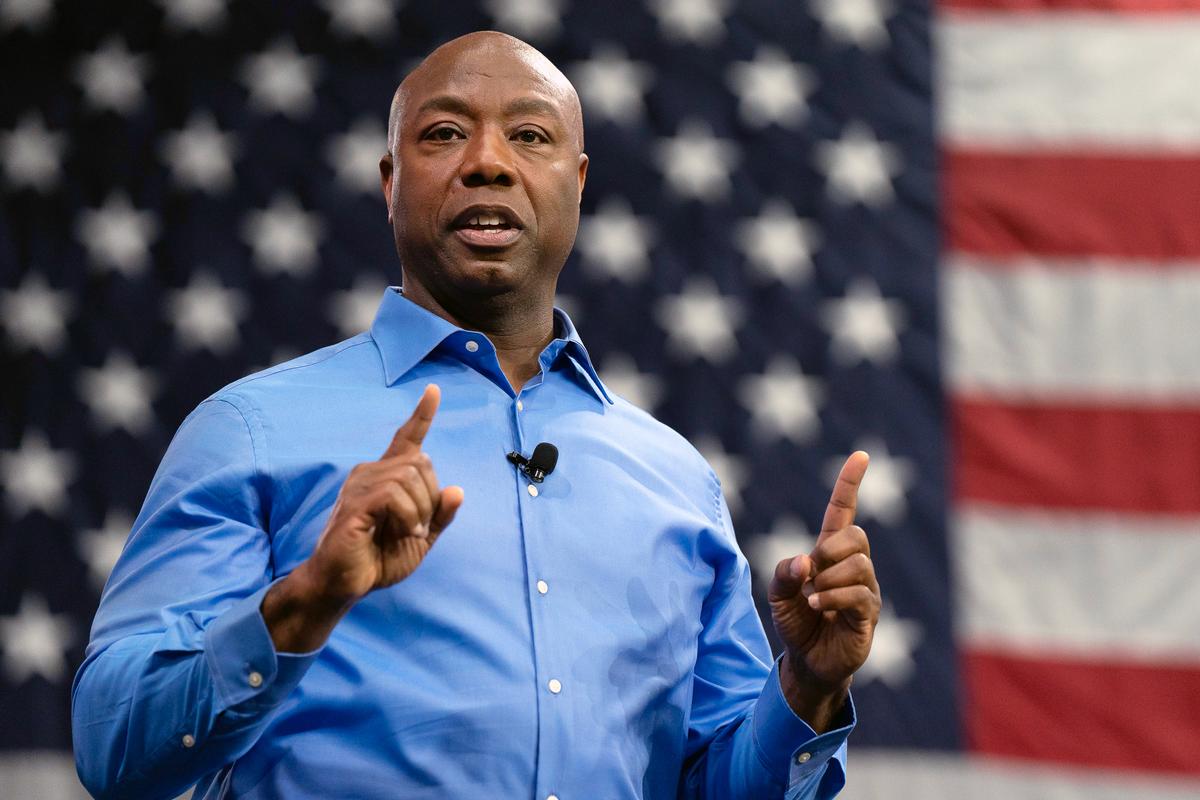
Mr. Cogswell received several endorsements from large players in national politics, including Sen. Tim Scott (R-S.C.). Mr. Tecklenburg, meanwhile, was backed by Rep. Jim Clyburn (D-S.C.).
After the race, Ms. Mace—who represents Charleston along with several other counties in the South Carolina low country—applauded Mr. Cogswell’s victory.
“Mayor-elect Cogswell and I had a great relationship when we both served in the state house, and we look forward to that relationship continuing well into the future,” she told The Epoch Times. “It’s clear the people of Charleston are tired of devastating inflation, higher gas and grocery prices, and rising crime, as are many across the country. Republicans would be wise to learn from mayor-elect Cogswell’s positive, unifying message, which led to this historic win.”
This is unusual in that party has been, until now, relatively unimportant in Charleston’s centrist politics.
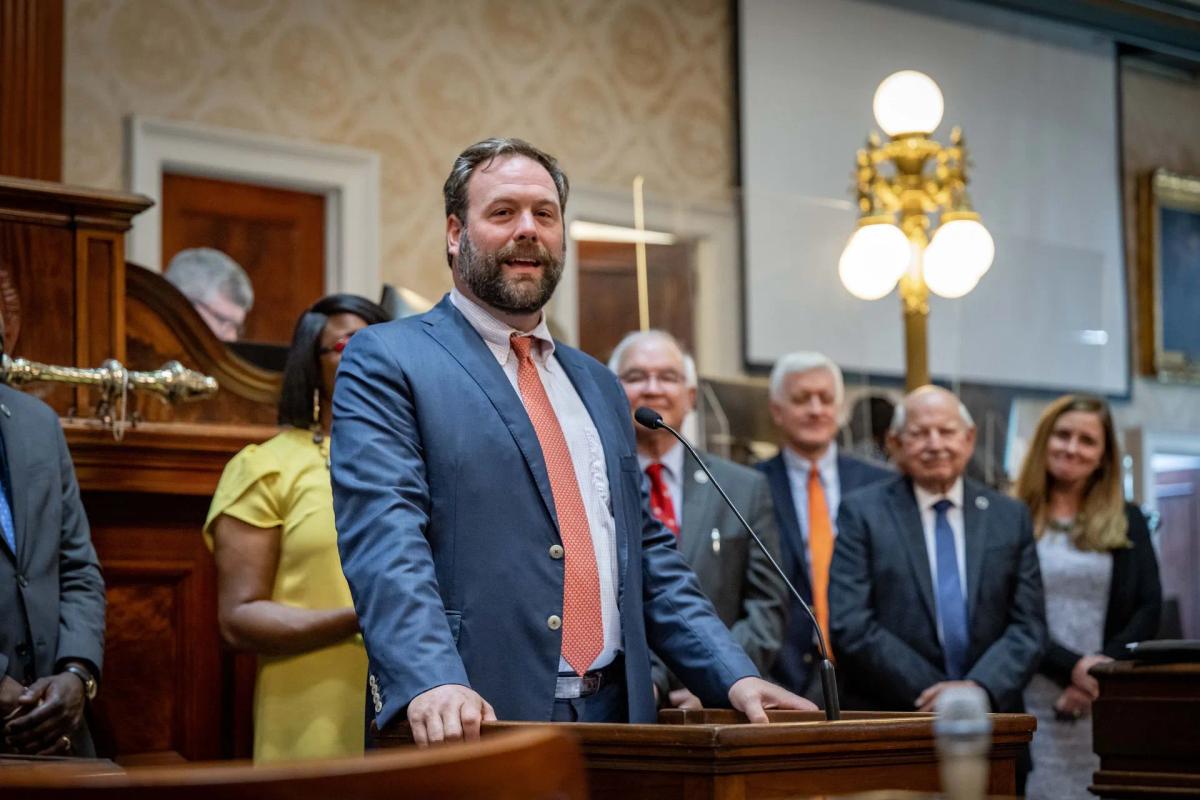
Things became more overtly political on the peninsula in 2020 amid the Black Lives Matter riots that rocked downtown Charleston, as well as many other metropolises across the United States.
Mr. Lacy cited the liberal comments made by Mr. Tecklenburg in the past, as well as his reaction to the Black Lives Matter riots that caused property damage across the city in 2020, as contributing to the race’s more partisan character compared to past races.
Ms. Parker also accused Mr. Tecklenburg for “injecting national rhetoric” into Charleston politics in 2020.
“Sometimes I think we secretly think of Charleston as our little bubble. “Like, ‘Oh, it can’t happen here,'” Ms. Parker said, referencing the widespread property damage caused by the riots.
“When that sort of national rhetoric sort of crept its way into our locality, it’s upsetting.”
Mr. Boucher agreed that more overtly politically hot issues defined the mayoral race.
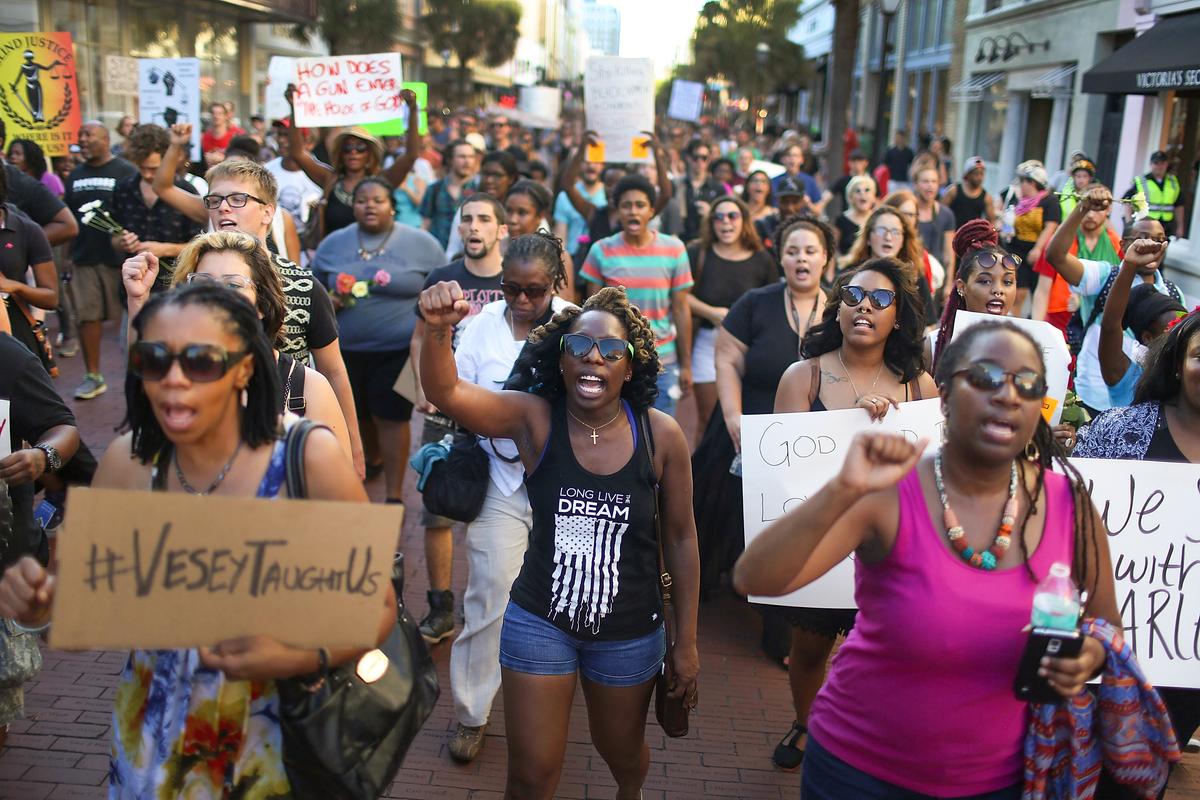
“I think the biggest issue that resonated with the voters, especially the Republican voters in Charleston, was [Mr. Cogswell’s] focus on crime,” Mr. Boucher said. “Making sure our streets are safe. There’s been an uptick in crime. There obviously has been a lot of fallout from the riots in 2020 and the response to that. But … it was also about the delivery of services. And then a lot of mismanagement and waste in city government and focusing on the nuts and bolts of the city.”
For his part, Mr. Cogswell contended after his victory that the race was about more than partisan politics, saying “mutual love and respect” outweighed partisan concerns.
“I’m pretty proud to have very conservative people who supported me and very liberal people,” Mr. Cogswell said.
Charleston imposes no term limits on the office of mayor and the next mayoral election is scheduled for 2027.
